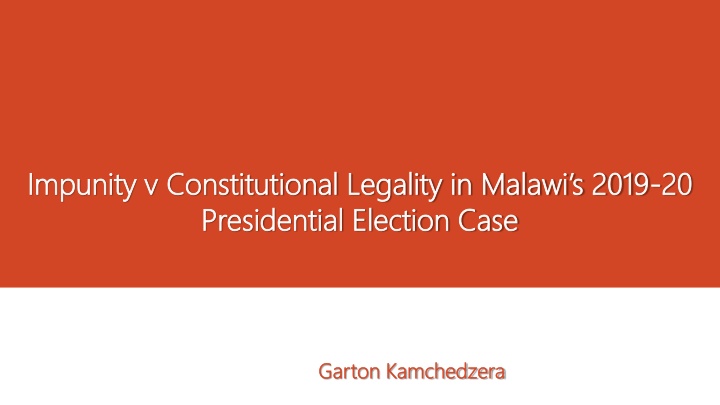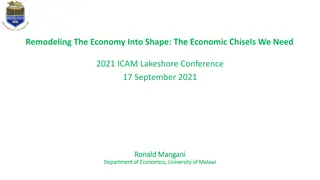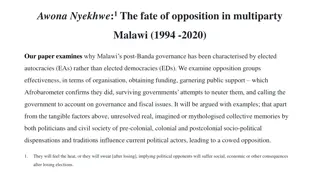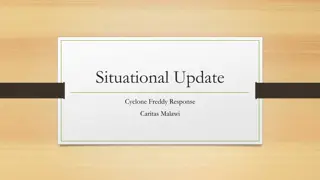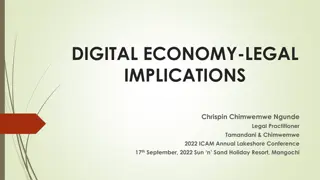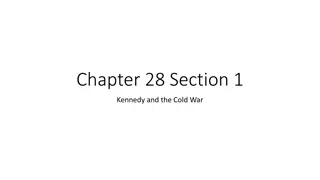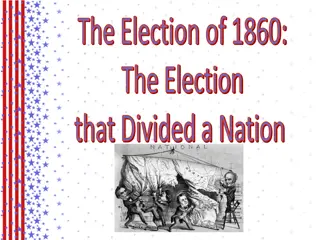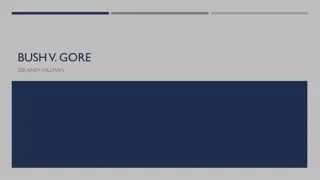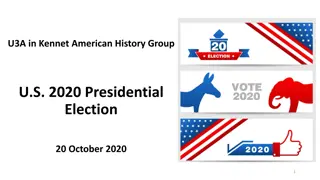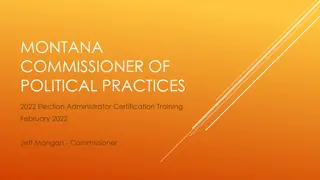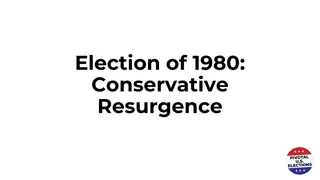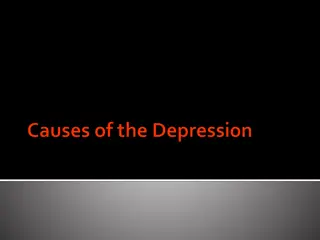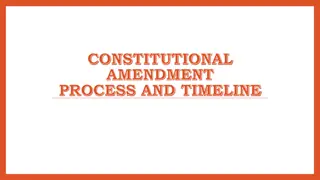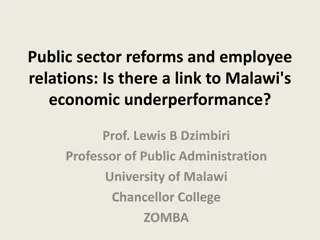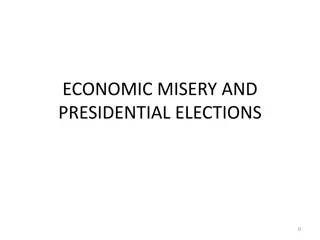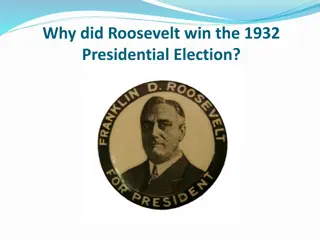Impunity vs. Constitutional Legality in Malawi's 2019 Presidential Election Case
Explore the conflict between impunity and constitutional legality in Malawi's 2019 Presidential Election case. The concept, approach, and argument related to allopoietic law implementation, interpretative inquiry, and rejection of mediocrity are discussed in detail. The battle against impunity and mediocrity, the shift towards constitutional legality, and the fight for transformational constitutionalism are highlighted.
Download Presentation

Please find below an Image/Link to download the presentation.
The content on the website is provided AS IS for your information and personal use only. It may not be sold, licensed, or shared on other websites without obtaining consent from the author.If you encounter any issues during the download, it is possible that the publisher has removed the file from their server.
You are allowed to download the files provided on this website for personal or commercial use, subject to the condition that they are used lawfully. All files are the property of their respective owners.
The content on the website is provided AS IS for your information and personal use only. It may not be sold, licensed, or shared on other websites without obtaining consent from the author.
E N D
Presentation Transcript
Impunity v Constitutional Legality in Malawis 2019 Impunity v Constitutional Legality in Malawi s 2019- -20 Presidential Election Case Presidential Election Case 20 Garton Kamchedzera Garton Kamchedzera
1) The Concept, Approach and Argument 2) The Conceptual Battle 3) The Approach-Related Battle 4) A Conclusion 1. The 1. The Plan Plan
T The Concept, Approach, and Argument he Concept, Approach, and Argument The Concept: Allopoietic (Not Autopoietic) Law Implementation The Approach and Method An Interpretative Inquiry Wanton decision- making and action taking without respect for the law and its consequences What was at stake conceptually in the electoral case? How did the parties in the case and the two Courts approach the court proceedings? Use of the two respective judgments of the MSCA and the Concourt The Argument Constitution Illegality (Allopoiesis) (Luhmann and Neves Paying little regard to professional standards or failing to attain average reasonableness in carrying out a duty The nullification of the results of the Presidential election in 2019 and ordering of fresh elections within 150 days from 3 February 2020 was a unique rejection of impunity and mediocrity.
2. The Conceptual 2. The Conceptual Battle Battle Impunity + Mediocrity Resisted
The Conceptual Shift from Impunity and Mediocrity 2. A Stand for Constitutional Legality The Constitution as an ideological site (Baxi, Ackerman, Hartdt and Negri, Hutchinson and Colon-Rios)) The law is an instrument to unify popular sovereignty and human rights (Habermas) Accountability and transparency The binary code of the law in electoral cases should be truth and justice, produced by compliance with the law 3. A Stand for Transformational Constitutionalism Use of Tippex to change numbers 147 complaints Consolidation of two cases Certification of the matter as constitutional Appointment of 5 judges The two courts recognition of the importance of the proceedings The linkage of elections as instrument for popular sovereignty and the authority to govern (Adejumoh, Lindberg, UDHR, ACPHR) The Electoral Commission as a duty bearer (Section 76, 77, 40) The Constitution as demanding accountability (Sections 4, 5, 6, 10, and 12(c) 1. A Stand Against Impunity and Mediocrity
1) Conceptually 2) In Approach 3. The Approach 3. The Approach- - Related Battle Related Battle
The 4 Approach-Related Battle Lines (1-2) Impunity and Mediocrity Technique or Argument Courts Response Battle Line 1)9 Applications and appeals at preliminary, consolidation, Concourt proceedings, between Concourt and MSCA 2)Attempts to have numerous witnesses Expedition versus Attempts to End or Delay the Case 1) Dismissed certain applications 2) Allowed appeals as case was continuing 1) Raise a prima facie case for the Electoral Commission 2) If the petition is raising issues of both quality and quantity, then the Court should be able to use both [quantitative and qualitative tests] 3) Setting the standard too high impinges on the average Malawian s right to access 1) She or he who alleges must prove. ; 2)A quantitative test in proving whether the election and the result were due 3)Higher standard of proof than on a balance of probabilities Conventional Burden and Standard of Proof
The 4 Approach-Related Battle Lines (3 of 4) Impunity and Mediocrity Technique or Argument Battle Line Court s Response Regularity and Substance v Irregularity 1. Do not allow non-pleaded matters 2.Lean for the methodological convenience of the Commission 3.Use of materials not prescribed by the law was acceptable as long as they served the purpose 4.Acting without regard to the propriety of authority is acceptable 5.Stick with precedent despite a previous judicial error to interpret the requirement of the majority of votes Distinguished general cases based on a petition and a Constitutional referral and do not frame embarrassing grounds Provided the rationales of 90 to 94 of the PPE Act: Transparency, and accountability Held that altering prescribed materials is unlawful , gross irregularity, or irregular Stressed that only the Legislature can change the structures in the electoral system Departed from Gwanda Chakuamba v Attorney General to hold that majority should mean 50% + 1 vote
The 4 Approach-Related Battle Lines (4 of 4) Self Interest v Duty-based Civic and Ethical Professionalism Courts Response Battle Line 1) Electoral commission could act as contestants and protectors of the interests of Mutharika 2)Attorney General could conflate the roles of legal practitioner for the Electoral Commission, Government principal legal advisor, Head of the Bar 1) Warned the Commission that any future wasteful and inappropriate conduct would entail that they pay their own costs for proceedings, 2) Reprimanded the Attorney General and eventually prevented him from arguing the appeal in the Malawi Supreme Court of Appeal Impunity and Mediocrity Technique or Argument
4. Conclusion In the end, the two courts nullified and affirmed the nullification of the elections because the irregularities and anomalies were so widespread, systematic and grave such that the integrity of the results [had] been seriously compromised After 26 years in operation, Malawi s Constitution assumed potency to help deliver a nation from impunity and mediocrity, because the judges in both courts resisted impunity and mediocrity and demanded strict performance of duties, and accountability. If constitutional legality continues to challenge impunity and mediocrity, the potential towards progressive well-being or development can go beyond the conduct of elections The two Courts linkage of elections with popular sovereignty towards progressive well-being in a constitutional democracy is novel in Malawi s legal system
